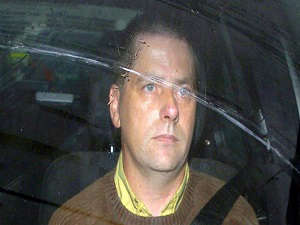
Q Radio News/PA
The European Union has backed down on its threat to override part of the Brexit deal on Northern Ireland after widespread condemnation of the move as part of its export controls on coronavirus vaccines.
Boris Johnson had warned European Commission president Ursula von der Leyen of his “grave concerns” over Brussels’ move to invoke Article 16 of the Northern Ireland Protocol to stop the unimpeded flow of jabs from the bloc into the region on Friday.
But an EU source told the PA news agency the move had been a “misjudgment”, as the European Commission backtracked to say it is “not triggering the safeguard clause” to ensure the protocol is “unaffected”.
The move to impinge on the protocol, which blindsided both the UK and Ireland and provoked condemnation from across the political spectrum, came as the bloc is embroiled in a row with pharmaceutical giant AstraZeneca over shortfalls in the delivery of jabs.
Northern Ireland’s First Minister Arlene Foster described Brussels’ initial move as an “incredible act of hostility” that places a “hard border” between the region and the Republic of Ireland.
🎥 Update from 1st Minister: “I’ve spoken with the Prime Minister @BorisJohnson and @michaelgove this evening. The Government must now take robust action including using Article 16 to advance Northern Ireland and the rest of the United Kingdom.” pic.twitter.com/8cdFOrxuPP
— Q Radio News (@qnewsdesk) January 29, 2021
But after Irish premier Micheal Martin and the Prime Minister both held calls with Ms von der Leyen, the commission issued a statement to back down on Article 16 and say it would be “fine-tuning the decision-making process”.
“In the process of finalisation of this measure, the Commission will ensure that the Ireland/Northern Ireland Protocol is unaffected. The Commission is not triggering the safeguard clause,” the statement said.
But it did not back down entirely on its export controls, which come as it is under intense pressure over its vaccine rollout, saying: “Should transits of vaccines and active substances toward third countries be abused to circumvent the effects of the authorisation system, the EU will consider using all the instruments at its disposal.”


 Pensioner shot five times after masked men broke into his home
Pensioner shot five times after masked men broke into his home
 Forensics link Martin McCauley to ‘cowardly murder’ of three RUC men, court told
Forensics link Martin McCauley to ‘cowardly murder’ of three RUC men, court told
 Suspicious object found in south Belfast believed to be ‘improvised grenade’
Suspicious object found in south Belfast believed to be ‘improvised grenade’
 Concern expressed that Omagh Bombing Inquiry won’t uncover full truth
Concern expressed that Omagh Bombing Inquiry won’t uncover full truth
 Miles of support for SPAR Craic 10k
Miles of support for SPAR Craic 10k